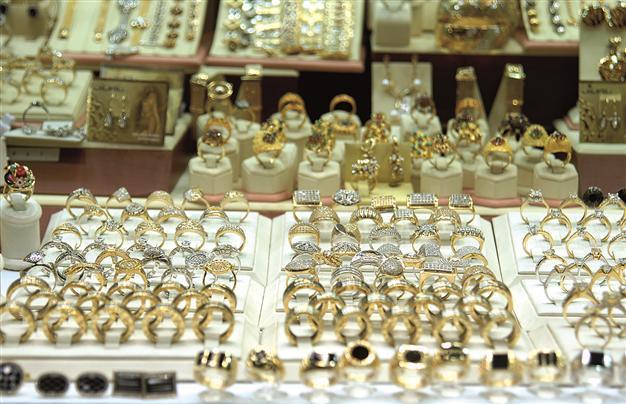Iran buys Turkish gold via UAE, economists say
ISTANBUL - Reuters

Turkey’s trade deficit fell 30 percent in August, official figures say. Gold sales to Iran via United Arab Emirates supported the recovery, economists speculate. DAILY NEWS photo
Turkey’s trade deficit fell 30 percent in August, reportedly on the back of strong gold sales to Iran even though the United Arab Emirates was the leading gold buyer from Turkey in the given period.The trade deficit fell to $5.86 billion, according to the Turkish Statistical Institute, compared with a $7.89 billion deficit in July and a forecast of $8.10 billion in a Reuters poll.
“This data is a result of soaring gold exports, which broke a record with $2.3 billion in August,” Oyak Securities economist Mehmet Besimoğlu said on Sept. 28. “Gold exports were generally to Iran, made via the United Arab Emirates.”
Turkish gold sales to Iran have soared as Iranians turn to the precious metal to protect savings and, potentially, to trade, as Western sanctions aimed at forcing the Islamic republic to curb its nuclear program tighten.
Some trader firms also speculated that gold to the UAE might be for Iran in deed. As a whole, Turkey’s gold exports jumped more than fourfold to $11.2 billion in the first eight months of 2012. Overall exports to the UAE jumped eightfold to $2.23 billion, making it Turkey’s largest export destination in August.
“The lower-than-expected August trade deficit was mainly due to the slowdown in domestic economic activity and net gold exports,” researchers from local lender TEB said.
Exports rose 14.5 percent to $12.87 billion, as growing trade with markets in Africa and the Middle East eclipsed a slowdown in demand from Europe. Imports fell 4.8 percent to $18.74 billion.
‘Bad news for growth’
“The improvement in the foreign trade deficit accelerated sharply in August. This is good news for the current account deficit, but bad news for growth,” BGC Partners economist Ozgur Altug said.
Central Bank Governor Erdem Başçı said last week that while the bank expected economic growth to pick up next year and inflation to fall, the extent to which this would allow it to cut rates would depend on how quickly exports grew.
The trade deficit in the first eight months of the year narrowed 21 percent to $56.6 billion.
Exports to Africa and the Middle East rose 43 percent and 63 percent respectively, while exports to Europe, Turkey’s main trading partner, fell 9 percent.
“Looking ahead, imports will remain weak and gold exports will continue to remain strong. The trade data is supportive for a policy rate cut,” said Besimoğlu at Oyak Securities. The Central Bank cut its overnight lending rate for the first time in seven months at its last monthly policy meeting on Sept. 18.
















